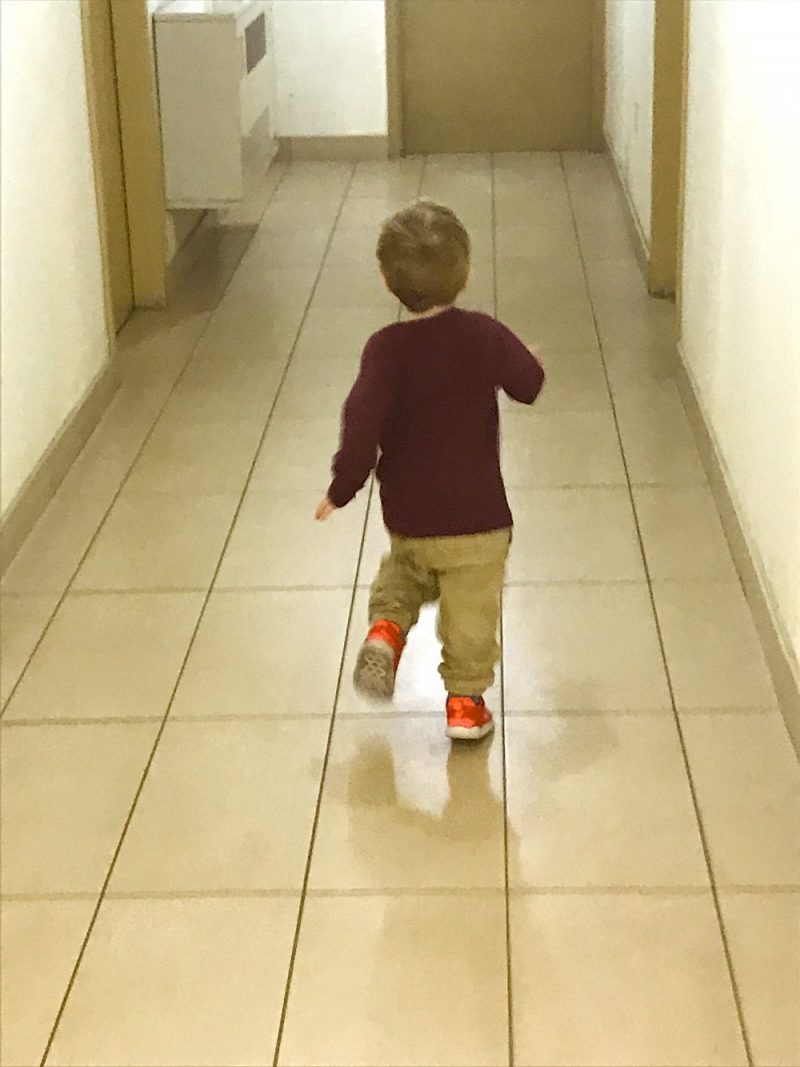This little monkey is a cutie, and he’s my cutie, but as you can tell, REST is not in his primary goals :)
He’s almost 3, and already ruling the roost. Sleep has not been his MO since he arrived, and honestly it’s taken its toll on this tired mama. I’ve been taking a hard line on rest in my life and it’s helped a lot.
I work with mostly mothers in their ‘prime of life’, but many of them don’t feel like the ages they are, and frankly most of them are like me, very tired. They want to do more for themselves, but they are supporting aging parents, suffering from the loss of family members as begins (if not it has already happened) while raising young families. The one main thing we work on together is getting them back to sleep, and prioritizing rest. Why?
Sleep deprivation is akin to driving drunk, as described by the National Sleep Foundation. We don’t form memories properly, our supposedly “superior” human brains actually cannot use their thoughts the way they should because our brains are designed to go into REM cycles during sleep for healing and cleaning. Our brains without this time to heal and rest can begin to work against us, and our hormones cortisol and adrenaline designed to support us in stressful times actually push this sleep deprivation further, believing from a biological level that we need to push through to survive.
The fatigue is a sign of needing more REST, less activity, earlier bedtimes, less “yes” and more “no”. But when you’re exhausted, what is “yes” and “no” in itself are difficult decisions to make. So what to do?
- Routine
- Rectify
- Rejuvenate
Routine
- 1. Our bodies crave routine in rest, and that first place to begin is your bedtime hour. If you’re going to bed late as a parent to get more “you” time, you’re actually not getting the you time, you’re feeding the “stress” you. It’s a hard realization, but it’s an important one. More sleep = more eventual “you” time. I’ll talk about this in a minute.
Solution: Whatever your normal bedtime is, cut it back by 30 minutes. If you go to bed at 11:30, get yourself ready and physically and in bed for 11 pm. Then initially if you can’t sleep, do something calming. Reading, meditating, listening to music…anything that gently engages your mind while your body is just lying there. See if you can observe over 2 weeks that you are actually tired or more able to rest at that earlier time. If not, read on!
Rectify
- 2. Undoubtedly as you start to identify your need for sleep (and some nights might be better than others) you might notice you actually have a problem resting. For some people, their stress hormones have become dysregulated (not doing what they are supposed to do) and they actually prevent you from sleeping. This is when you might reach out to a health professional to support you and find out if you have a biological reason you are not sleeping. Or, you might discover you can sleep through the night and are getting more sleep, but you realize that lying down for the night you have a lot of worries in your head, and it’s hard to organize and calm your thoughts and the feelings that go with them.
Solution: Reach out to a health professional (psychologist for anxiety, naturopathic doctor or medical doctor for mind-body combination of sleep deprivation)
Rejuvenate
- 3. Once you are getting more sleep, then it is about finding out where in your life you actually are giving your resources, time, or energy away that are contributing to your energy fatigue. In this instance for myself, I am very careful how I expend my energy around 5-7:30 where my son is at his most tired and we need to get him fed, bathed and into bed. I am also careful to make sure I am fed and have a snack if he is tired as simpler examples.
Solution: Look at your life for areas of energy deprivation and make different choices.
Then I can concentrate on the things that make me feel happy, rejuvenated and passionate (like writing, talking to friends or family, or watching something on TV that makes me laugh).
Changes are not easy, but they are necessary. I promise, REST is the very first stage.
Download this quick reference guide summary to see where you might be having challenges with your sleep.
Dr. Aoife ND
References
Sleep deprivation increases formation of false memory.Lo JC, et al. J Sleep Res 2016 – Clinical Trial. PMID 27381857 Free PMC article.
Effects of sleep deprivation on cognition.Killgore WD. Prog Brain Res 2010 – Review. PMID 21075236
The sleep-deprived human brain.Krause AJ, et al. Nat Rev Neurosci 2017 – Review. PMID 28515433 Free PMC article.
